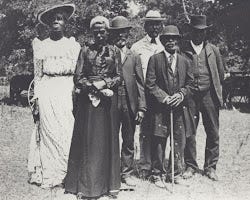
Abstract:
Juneteenth is a holiday that commemorates the end of slavery in the United States. It is celebrated annually on June 19th and is recognized as a day to reflect on the struggles and achievements of African Americans. The holiday has gained increased recognition and significance in recent years, with many states and organizations recognizing it as an official holiday. This paper aims to explore the history of Juneteenth, its significance, and its growing importance in American culture.
Introduction:
Juneteenth is a holiday that celebrates the end of slavery in the United States. It is celebrated annually on June 19th and is recognized as a day to reflect on the struggles and achievements of African Americans. The holiday has its roots in Texas, where on June 19th, 1865, Union soldiers arrived in Galveston and announced that all slaves were free.
While the Emancipation Proclamation had been signed by President Abraham Lincoln in 1863, it was not until the arrival of Union soldiers in Texas that the news of freedom reached all enslaved people in the United States. Juneteenth marks the day when the last enslaved people in the United States were freed.
The holiday has gained increased recognition and significance in recent years, with many states and organizations recognizing it as an official holiday. Juneteenth celebrations often include parades, picnics, and other community events that celebrate African American culture and history.
In 2021, Juneteenth was officially recognized as a federal holiday, making it the first new federal holiday established since Martin Luther King Jr. Day was created in 1983. The recognition of Juneteenth as a federal holiday is a significant milestone in the ongoing struggle for racial equality in the United States.
This paper aims to explore the history of Juneteenth, its significance, and its growing importance in American culture. By understanding the significance of Juneteenth, we can gain a deeper appreciation for the struggles and achievements of African Americans and work towards a more just and equitable society.
Juneteenth, also known as Emancipation Day or Freedom Day, is a federal holiday in the United States commemorating the emancipation of enslaved African Americans. The holiday commemorates June 19, 1865, when Union Army Major General Gordon Granger arrived in Galveston, Texas, and issued General Order №3, proclaiming that all enslaved people in Texas were free.
While the Emancipation Proclamation had been issued by President Abraham Lincoln in 1863, it took more than two years for news of the proclamation to reach Texas. This was due to the remoteness of the state and the disruptions caused by the Civil War.
When news of General Granger’s order finally reached Galveston, enslaved people rejoiced. They celebrated their freedom with parades, picnics, and religious services. Juneteenth has been celebrated annually in Texas ever since.
In recent years, Juneteenth has gained national recognition. In 2020, President Joe Biden signed legislation making Juneteenth a federal holiday. This was the first time a new federal holiday had been created since Martin Luther King Jr. Day in 1983.
Juneteenth is a time to celebrate the end of slavery in the United States. It is also a time to reflect on the progress that has been made since then, and to recommit ourselves to the fight for racial equality.
**How to Celebrate Juneteenth**
There are many ways to celebrate Juneteenth. Here are a few ideas:
* Attend a Juneteenth celebration in your community.
* Learn about the history of Juneteenth.
* Reflect on the progress that has been made since slavery ended.
* Recommit yourself to the fight for racial equality.
Juneteenth is a day to celebrate freedom, hope, and progress. It is a day to remember the past, and to work for a better future.
Here are some recommended books, movies, and videos on Juneteenth:
Books:
1. “Juneteenth: A Novel” by Ralph Ellison — This novel explores the life of a biracial politician who is haunted by his past and his relationship with a black preacher.
2. “Juneteenth Texas: Essays in African-American Folklore” by Francis Edward Abernethy — This book explores the history and cultural significance of Juneteenth in Texas.
3. “The Half Has Never Been Told: Slavery and the Making of American Capitalism” by Edward E. Baptist — This book provides a comprehensive history of slavery in the United States and its impact on American capitalism.
Movies:
1. “Miss Juneteenth” (2020) — This movie tells the story of a former beauty queen who prepares her teenage daughter for the Miss Juneteenth pageant.
2. “Freedom Riders” (2010) — This documentary tells the story of the Freedom Riders, a group of civil rights activists who rode buses into the segregated South in 1961.
3. “Glory” (1989) — This movie tells the story of the 54th Massachusetts Volunteer Infantry, the first all-black regiment in the Civil War.
Videos:
1. “Juneteenth: Celebrating Freedom” by The History Channel — This video provides a brief history of Juneteenth and its significance in American culture.
2. “Why Juneteenth Matters” by Vox — This video explores the history and significance of Juneteenth and why it is important to celebrate the holiday.
3. “Juneteenth: A Celebration of Freedom” by National Geographic — This video provides a glimpse into the celebrations of Juneteenth across the United States and the cultural significance of the holiday.
By reading these books and watching these movies and videos, individuals can gain a deeper understanding of the history and cultural significance of Juneteenth and its ongoing importance in American culture.
No comments:
Post a Comment
Welcome to Leave a Comment